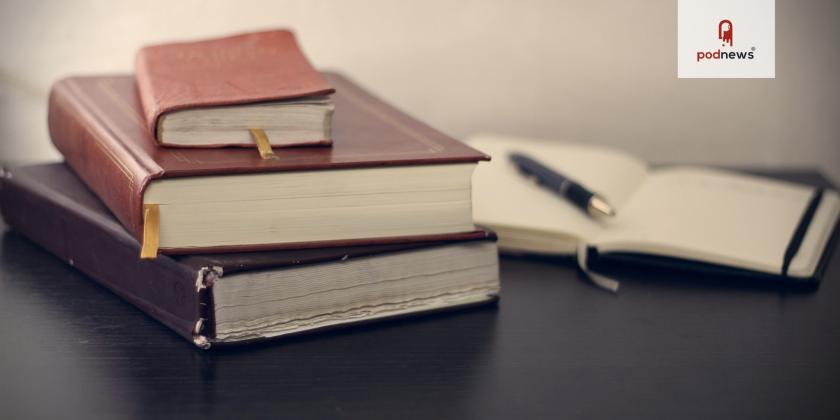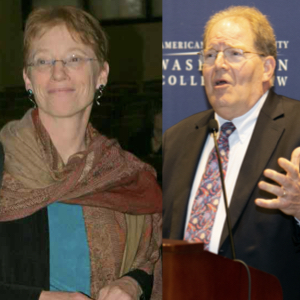
How to know when you can depend on 'fair use'

This article is at least a year old
Podcasters run into copyright questions every day, as makers of media that frequently refers to today’s or yesterday’s culture. And as copyright monopolies now stretch, in most nations, to about 70 years after the death of the author, that means almost all of living and even recently-dead culture is copyrighted.
That means yesterday’s cultural creators have a death-grip on any future expression — a right of private censorship.
Unless.
Copyright law in most parts of the world has provisions for the creator who isn’t simply lifting the work for its original purpose, but instead is re-using it to say something new and different. The biggest of those formal exceptions is variously called “fair use” or “fair dealing,” and sometimes “right of quotation” is a useful exception too.
But can podcasters really use these exceptions safely? Well, they face a lot of naysayers, including the editor of Podnews, who warns podcasters everywhere never ever ever to use music without licensing it.
Good news
As copyright scholars, we respectfully disagree with this blanket rule, and suggest that today’s reality differs dramatically. In fact, podcasters are employing fair use or fair dealing every day, including with music but also with the many other copyrighted works that occupy the cultural landscape. This includes interviews (your interviewees may own their own statements, even if you record them), background sounds (that loud car radio, those protesters’ chants), ring tones, news reports, text documents (including a lot of government documents, particularly from local and regional governments), home movies and tapes, and so much more. They may not even know they are employing a copyright exception as they do it.
And they’re not getting sued for that use, either.
Of course, many podcasters are “little guys,” who don’t want to risk even the possibility of a lawsuit. But how risky is putting copyrighted work to use for a new purpose without licensing it? In the US — which is the jurisdiction where lawsuits are most likely — not risky at all, if you understand and use the courts’ interpretive logic, which has become pretty dependable.
What is “transformative”?
US law deciding fair use, which Canadian law largely echoes, is now grounded in “transformative” logic. That is, if your use is for a different purpose than the market purpose of the original--for instance, you are illustrating a point, or you are comparing different compression algorithms on the same piece of music, or you are doing criticism, or you are making a sound collage--and the amount or nature of your use is appropriate to that new purpose, your use is fair. That goes for all kinds of media (yes, even music), and on all kinds of platforms (yes, the Internet). Such use does not hurt the copyright owner’s market, it encourages the creation of new culture, it permits access to existing culture in order to make new culture.
As a quick-and-dirty measure, ask yourself: Would someone listening to this copyrighted material on my podcast be able to say, “Oh good, now I don’t have to buy that; this is the same thing, only for free”? If they could, definitely get a license. Also, if you are using music as soundtrack or decoration, licensing is probably in the cards, since licensing for soundtrack uses is a common use of copyrighted music. The same logic applies to stock photos and sound effects, which are created to be used in all kinds of situations.
But uses that would include (but not be limited to) illustrating, demonstrating, critiquing, comparing, and proving a point, when the uses are in an amount limited to that use, would merit consideration of your nation’s copyright exception.
Together and with other colleagues, we have worked for 15 years with creatives of all kinds in the US to clarify what their fair use rights are. And by the way, we used the word “right” on purpose. Pace James Cridland, it is a right, not a mere defense. While the way it becomes a right is as a defense, this is because one only need assert it if one is challenged. It is a right the way the right of self-defense is. This is settled law, not our opinion.
Of particular interest to podcasters may be the most venerable code of best practices in fair use, the one created by documentary filmmakers. This code is now used both by doc and fiction filmmakers, and it was instrumental in persuading a long-resistant errors-and-omissions insurance industry to insure for fair uses. These days, fair uses in documentary films are typically insured for errors and omissions, including copyright violations, without any surcharge. The situations in which documentary filmmakers would apply fair use is very similar to podcasters’ most common situations. But if you want to see how other creative communities, including journalists, makers of Open CourseWare (also available worldwide), media literacy teachers, librarians, artists and art historians, and nonfiction authors regard as best practices in fair use, you can do that too. The same logic applies to them all.
But my podcast goes out to the world!
But what if you’re not in the US? Well, then you’ll be paying attention to your national law on exceptions. International law has not been definitively made on how a person working in a worldwide platform like the Internet should reason on use of their national exceptions. Podcasters need to be most concerned about the laws of the countries where they operate, or to which their programming is specifically directed, or possibly from which they drew a disproportionate amount of source material. We wish we could tell you the answer, but law has not yet caught up with practice.
We can tell you from experience of creators so far, that it’s doubtful that you could could or would be held liable for copyright infringement in some random country where the podcast was simply downloaded.
Still nervous? We understand. If so, you can always seek errors and omissions insurance, which is usually quite reasonable. The relatively low prices, of course, reflect, as insurance prices will, the insurers’ belief that risk is low too.
Making you afraid of your rights
The simple realities about exceptions have been treated by collecting societies and large music labels as existential threats to their existence. In their efforts to stop unlicensed digital use of entire works for their original purpose, copyright exceptions have become an innocent-bystander victim. Fair use and fair dealing have nothing to do with “piracy,” since they are authorized, limited uses of unlicensed copyrighted material for a new purpose. They do not impinge, by definition, on the rights of monopoly holders of copyright.
What makes us sad, and sometimes angry, is that creators, who are just as smart and capable of understanding the law as any music executive, are routinely lied to in the name of defending creative rights, and often never hear anything but the copyright industries’ side. But what executives are defending is not creators’ creative rights, but a business model of companies that seek rent from collecting copyrights, often without even doing the work of developing algorithms that work.
It is absolutely true that algorithmic detection of online content on Internet platforms poses a grave challenge to fair use and fair dealing. But not because it detects a violation. Companies have never been asked seriously to take into consideration fair use or fair dealing when they detect a match. Many classical musicians can tell you the cost to their businesses of having music companies file takedown notices on them for works in the public domain, because algorithms can’t detect the difference between their own musicians’ copyrighted performances and the guy who played Meditation from Thaïs for someone’s funeral and is posting it as a work sample.
It is possible in most cases to challenge a takedown, and to invoke fair use or fair dealing when doing so. But to do that, you’d have to know about what your rights are, and creators are routinely misinformed about them. They also don’t know what the real risks are.
Risk and danger
In the US there is no history of any copyright industry entity suing an Internet platform user for copyright violations. The sole lawsuit was brought by a copyright user, and she brought it against Universal for intimidating her with a takedown notice for a clear fair use. More than a decade later the lawsuit is still in process, but she has received an interim judgment telling Universal that it must provide more justification than it did, if it suspects infringement. However, enforcement has not followed; neither Universal nor other media companies are paying a penalty for forcing takedowns of perfectly legal work. RIAA lawsuits were long ago leveled against consumers illegally uploading music, an entirely different category than podcasters. RIAA gave it up, though, because the lawsuits created so much negative publicity. So there’s no history of media companies suing creators here. But there is plenty of intimidation.
Moving copyright enforcement to private actors who pay no price for sweeping the innocent in with the guilty is a danger to all creators. It poses a grave threat to the viability of exceptions, which keep copyright in the US from being unconstitutional, and in other places provide the breathing room that keeps copyright law from facing fundamental reform challenges.
Creators themselves are an important source of pushback on this trend—if they know their rights, and if they assert them. It is wise to consider the laws of your country in doing this work, but it is dangerous to surrender your rights to quote your own culture in situations where it is entirely legally appropriate.
































































































